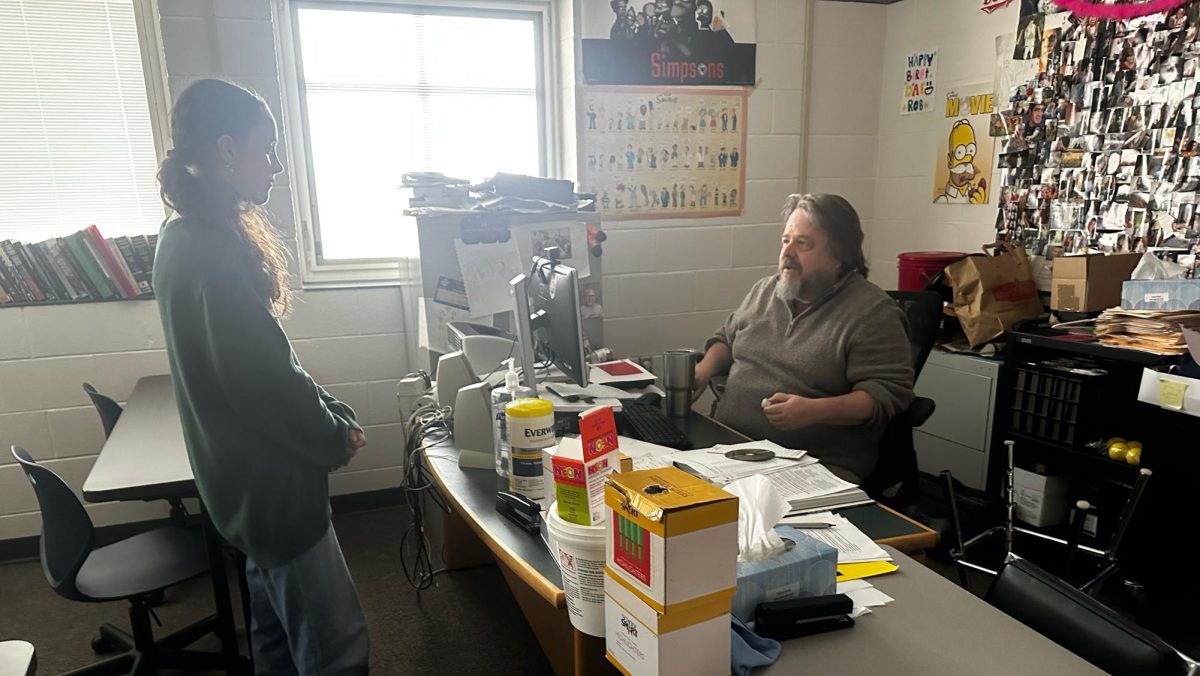As students at Grand Haven consider the option of online education, many are evaluating how this shift would affect their academic success and social connections.
For students like junior Hunter Ellis, the transition to online schooling has offered an innovative alternative to traditional schooling. Ellis chose to switch to online this year to gain more control over his schedule.
“I needed more time to do the things I wanna do in the future that I can’t when school is consuming all of my time,” Ellis said. The flexibility of online education allows him to access assignments at his convenience and work ahead if he wishes.
“The work is really easy,” Ellis said. “The nature of online school better aligns with my academic needs.”
Similarly, sophomore Madison Hernandez is contemplating the switch to online education, saying that learning from home could help her focus and manage her time more effectively.
“Sometimes I struggle with time management and the homework feels overwhelming,” Hernandez said.
Despite the potential academic benefits, the shift to online education raises questions about social connections. Ellis recognizes the challenge of maintaining friendships in a digital environment, even though he doesn’t struggle with that himself.
“I try to hang out with friends as much as possible,” Ellis said. “If you’re not a social person it’s not a good idea.”
Hernandez shared similar concerns regarding social engagement.
“Social interaction is really important to me,” Hernandez said. “Even though technology allows for communication through texting and video calls, it can’t replicate human interaction.”
In contrast, sophomore Alyssa Skofic, who continues to attend in-person classes, values the structure and routine they provide.
“I like that I get to see my friends,” Skofic said, noting that being around peers helps her cope with the challenges of school.
Educators also have varied perspectives on the transition to online learning. History teacher Mark Robertson acknowledges that online education can be effective for some students but emphasizes the need for social interaction.
“We are social creatures,” Robertson said. “Online learning would limit students’ exposure to diverse viewpoints.”
Robertson’s insights underline a concern shared by many in the educational community: the importance of developing social skills alongside academic knowledge. He warns that a lack of face-to-face interactions could hinder students’ preparation for real-world scenarios where collaboration and communication are essential.
As students navigate the choice between online and in-person education, the balance between academic success and social connections is a critical consideration. Online learning presents unique opportunities for flexibility and individualized education, but it also poses challenges regarding social engagement and peer relationships.
The decision to pursue online schooling is influenced by each student’s specific circumstances and preferences. While some students may thrive in the independence offered by online classes, others may find that the social interaction in traditional schooling plays a vital role in their experience. As the landscape of education continues to evolve, understanding the effects of these choices on academic achievement and social relationships remains important for students, parents and educators alike.
“Online learning offers students the freedom to shape their own schedules and focus,” Robertson said. “But without daily connection with classmates and teachers, you can miss essential skills in collaboration and adapting to diverse perspectives—skills that only come from shared experiences.”

